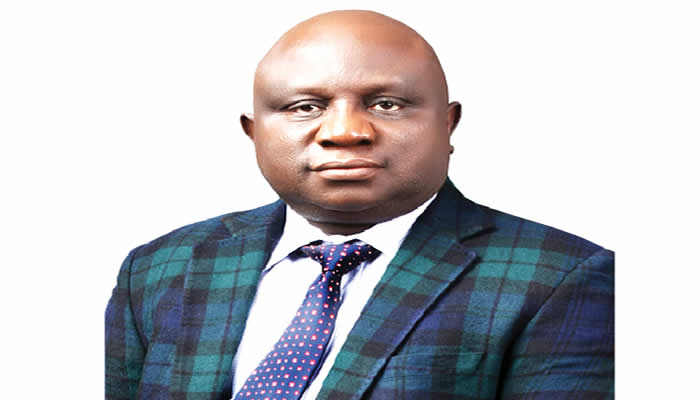
A professor of African History, Peace and Conflict Studies, Isaac Albert, who is also the pioneer Director of the Institute for Peace and Strategic Studies, University of Ibadan, Oyo State, tells TUNDE AJAJA his thoughts on the spate of kidnapping across the country and the way forward
There are reports of kidnapping almost every day in different parts of the country, how did things become this bad?
We got here because of our culture of impunity. We have been having cases of kidnapping all over the country but we hardly see the government taking the right steps, whether you are looking at the Niger Delta where this problem of kidnapping started or you zoom your mind to the South-East where it expanded and then move to the rest of the country where it has become a career. We have never had the Federal Government taking appropriate steps. When you have this type of problem, what is expected is that the government would go all out in consonance with its responsibility of protecting lives and property to take the right steps and deal with the problem. We have cases all over the country where these kidnappers negotiate the ransoms they want to collect using telephones. Whether the kidnappers use their own phones or they use the phones of the abductees do not matter. What matters in this case is that wherever that signal is coming from, it should be tracked by our communication system, but these kidnappers carry out their negotiations peacefully. They collect the ransom, move the money and we do not see anybody being arrested. It’s a very shameful thing. How many Nigerians have been arrested and taken to court beyond the sensational case of Evans (Chukwudimeme Onwuamadike)? They made a big show of him, but (Abba Kyari) the man that arrested Evans turned out to be (allegedly) a bigger criminal. It’s really sad.
With the prevalence, should it be so difficult for all the security agencies to crack the problem?
My understanding of it is that it is now within the framework of the Federal Government’s penchant for blaming it on unknown gunmen. In my own interpretation, what is really happening is ‘ungunned’ known men. In other words, we are saying the government knows them but it is not ready to gun them down. The Governor of Kaduna State, Nasir El-Rufai, said we (government) know where they are and we listen to their conversation. So, if you know where they are and you listen to their calls, what stops you from going after them? (Sheikh Ahmad) Gumi said the same thing; that we know where they are. Several times, Gumi went to have meetings with them. The problem I think we are facing is that of state collapse because when the state can no longer protect lives and property of citizens, that state has obviously derailed. What is becoming clearly evident today is that the Nigerian state lacks the capacity to protect citizens, because you know where those who have abducted your citizens are, yet you are unable to do anything. That is why people no longer travel like before. Now, you have the same government making a law that if you pay ransom, you will go to jail. You begin to ask yourself, what kind of country is Nigeria; a country where the government will not protect you and will make it impossible for you to protect yourself, whereas they have security personnel around themselves, their children and spouses. It tells you that governance has completely collapsed in Nigeria, leaving citizens helpless. Looking at the victims of the Kaduna train attack, we understand some are bitten by snakes, yet what we get from the President (Major General Muhammadu Buhari (retd.)) is that ‘I direct the security agencies to secure their freedom’. How? We all know these kidnappers and the people they took hostage eat, where are they getting the food from? That means there is a supply chain that should have been identified and monitored. This is a criminal network that the Federal Government is familiar with. The problem, basically, is the lack of capacity to protect citizens.
When El-Rufai said they knew where the bandits were, the NSA, Babagana Monguno, said government was being cautious not to invade the place so as not to harm the abductees, are there no tactical ways of conducting such operations?
Are we the only country whose situation requires such rescue operations? We are not. An American was abducted and was rescued from the North-East, the United States Armed Forces rescued the man and left our Nigerian abductees there. So, this idea of trying not to harm people is to tell you how bad things have gone. Let us even forget about the risk of releasing them. Consider the process involved in the abduction of those passengers; the terrorists came to the train station, brought several vehicles and parked somewhere until the attack was carried out. Many people were captured and taken away in those vehicles, and the operation could not be stopped and none of the kidnappers was arrested. It’s very worrisome. The lack of deterrence, like diligent prosecution, has also become an incentive for them and it is part of the reason why it is expanding. It’s worsened by the fact that they know Nigerians are not protected. You can say you won’t travel or go out but they now abduct people from their homes. Across the country, a lot of money must be exchanging hands and it’s now very difficult to stop.
If the government is desirous of stopping it, how best should it approach the problem, given the level of arms proliferation and rate of unemployment and underemployment?
When you are looking at a problem of this nature, academically, you break it into two; you look at the demand side and the supply side. What we have been discussing so far is what the kidnappers are doing. But we also have to consider why the kidnappers are doing this. We won’t justify what they are doing, but by the time you begin to look at it from both angles, many of them are produced by the bad governance in the society. The grouse we have with them is that you don’t have to go into criminality because things are difficult, because you are not the only ones affected. So, crime cannot be the only way out. To critically interrogate your question, solving this problem is not only from the demand side, but also from the supply side, so we cannot just say the best solution is to arrest them, kill them or jail them. It won’t solve it because it has become a career for them. I think the best solution is to make Nigeria a better place for everybody. If that happens, there will be less tension. The only thing that would compete with kidnapping for ransom now is stealing in politics. I think that one is more lucrative. But when politicians leave office, one wonders if some of them will not try their hands in forming their own criminal gangs because what they get from politics nowadays is outrageous and maintaining that lifestyle outside that office may be difficult.
The Federal Government changed the name of bandits to terrorists, has that changed much?
Being tagged terrorists is an international requirement for monitoring a problem. If you engage in the kind of criminal attacks we are witnessing now in the North-East and North-West and you target communities, you kill farmers, send them out of their communities, it is terrorism. It is community-targeted violent extremism. If the attack of a group is on the government, it is not terrorism. The international community is not so interested if you are just attacking a government because you may be doing it because that government is unjust. Now, the requirement that we should redefine it as terrorism is to enable the use of Tucano jets to fight them because the United States will not give you Tucano jets to fight petty criminals or enemies of the government. The problem is the lack of will. You will realise that there was a time the military went to the North-East and fought there for two days and killed many terrorists. So, it is not in the interest of some people that this one should be scientifically done. I think that is the frustration Governor El-Rufai has been expressing; that we know where they are, why can’t we deal with them.
Governor Rotimi Akeredolu of Ondo State said a few days ago that the forests had been taken over by terrorists. The two Chibok girls who escaped from the Sambisa Forest recently said about 20 girls were still in the forest. Can the Sambisa forest be bigger than what the Nigerian state can manage?
Sambisa Forest is very big and Borno State is very big too. So, the size of the forest is a problem. Secondly, you want to ask yourself, how could a country have that massive forest and leave it untouched until it was taken over by criminals. Forests all over the world constitute a very big economic resource, but ours have been abandoned by the government. Everybody is looking for oil, and while they were doing that, criminals took over the forests. So, if you lack the capacity to manage your forest, automatically, your forest will turn into what is called ungoverned space, defined as a geographical space that is not under the control of anybody. In fact, in this case, we cannot totally say the space is ungoverned, because it is governed by criminals. They use the space to make Nigeria ungovernable.
Why has it been difficult to manage the forests?
Several suggestions have been made on how to recover the forest. For example, Akeredolu has been leading the national discourse on the need for state governments to recover these forests from criminals, but each time he comes up with that suggestion, people abuse him and stop him from doing what he should do. The last suggestion he made was that, let us bring everybody out and determine how many of them should return to the forest. All he was trying to say was that there were some people in the forest that were criminals but at the same time there were some people there doing legitimate business. Let us bring everybody out, we document them and determine who has the right to go back there and who does not have the right because they have no business being there. Immediately he said that, they said anybody can live anywhere. This federalism we are practicing is an unjust one and one that is bringing a lot of pain to Nigerians and preventing people from developing themselves. It is a wicked federalism, and that is where the problems lie. Community members know the criminals around them and they can manage them, but when federalism is preventing you from protecting yourself and the same federalism is not protecting you, it becomes a problem. This is the tragedy we are all witnessing today.
With the level of insecurity and arms proliferation that we have, do we need foreign help?
We cannot get out of our present problem without foreign help. We need foreign assistance, because the problems are many. You have drawn attention to the issue of arms proliferation. I think the criminals in this country have more arms than those who are supposed to be protecting the people and within that framework, I pity the police and the army. They are doing their best but when more arms are in the hands of non-state actors, how many police and military people do we have in Nigeria? When the bandits in the North-East are moving, on motorbikes like they say, maybe three on a motorbike, armed, and in some cases there are over 100 motorbikes, all of them armed. We need the support of the international community. But I really don’t think the international community is sufficiently honest in helping us. Why? I wouldn’t know.
They helped Nigeria in the past, why do you say that?
Yes, they helped us in the past but I don’t think they are sufficiently honest in helping us to manage our problems. Whether they are reacting to our lack of sensitivity or they do not want us to have peace, it’s difficult for anybody to say. You need empirical research to be able to establish that, but I really don’t think the international community is interested in Nigeria being peaceful.
But Nigeria should be able to address its own problems.
The political will is not there and that will is critical when you are managing a problem of this nature. That was one of the lessons I learnt early in my career, working with people across the globe. In the western world, you may be the biggest security person, if you do anything that will hurt national security, you are arrested immediately and dealt with. But here, it’s very clear to everybody that the will to solve the problem is not there, and that is why I don’t feel happy when security agents are blamed. Our security people will go as far as they are allowed to go. I stand my ground and I have written extensively on it that we have the best military in Nigeria and shockingly I will tell you we have the best police in Nigeria. When our policemen go abroad for international peace-keeping operations, they always come back with laurels, so the question is, why do they do so well outside and when they come back to the country, they perform so badly. Why do other nations ask for the assistance of the Nigerian military, but when they are operating within the country, they look as if they are not strong. So, there is something Nigerian that is destroying the capacity to protect the citizens. In all, it is the common man that suffers. Now, everybody is afraid.
There is an increasing demand by governors that citizens should get guns and defend themselves. The latest was from Governor Bello Matawalle of Zamfara State, given the level of insecurity in the state. Should everybody be armed?
That would really compound our problems. Even in the western world where people are allowed to be armed, you see killings from time to time. Yes, we have a lot of arms in circulation but these arms are hidden. The moment you say everybody can carry arms, you see everybody going to the market to buy arms. It’s not good for our society. Many could get killed based on just disagreements over right of way. Some Nigerians are so disorganised that they can fight over anything. A society like ours should not have that kind of policy. Even in the western world where they have the policy, all attempts are being made now to review that liberty. We cannot run a society that way.





